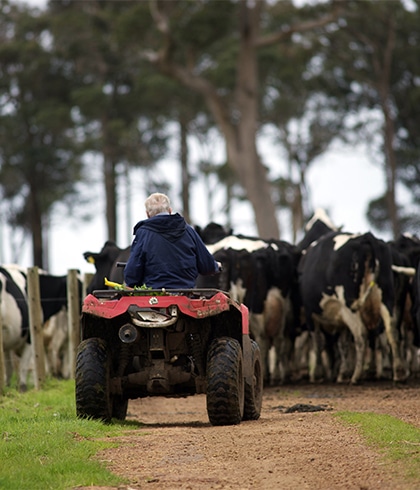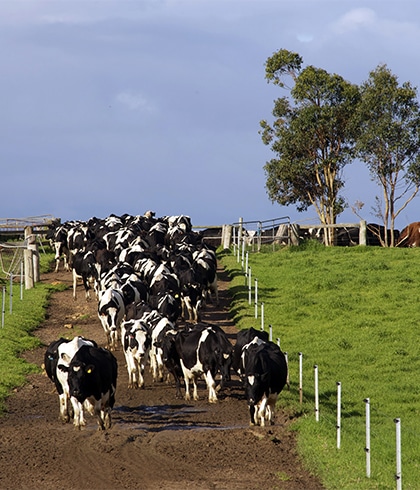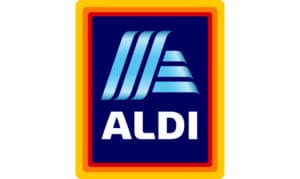Urban Myths
‘Milk causes mucus’
Numerous studies show that milk DOES NOT cause mucus production. Some people may experience a thin, temporary coating over the mouth and throat after drinking milk. This is often mistaken for mucus but is simply milk’s natural creamy texture. This is not harmful and the sensation lasts for only a short period of time. Too much mucus is typically caused by things such as infection, dry air, dehydration and certain medical conditions.
‘Low fat milk just watered down’
No, reduced fat and skim milks are not just watered down milk. We still use the same, quality WA milk, straight from the cows, and put it through a process whereby we remove the naturally occurring cream in the milk. Because most of the fat in milk is contained in the cream, removing it takes out most of the fat. Given cream’s natural thickness, without it the milk tastes and feels thinner which is where this common myth comes from. Rest assured, it’s still just real, fresh WA milk!
‘Milk causes asthma’
Milk is rarely a trigger for asthma. Common triggers for asthma include allergens such as house dust mites and pollens, viral infections and exercise. Foods, drinks and food chemicals affect less than 2.5% of all people with asthma. The National Asthma Council recommends that people with asthma should eat a nutritious diet from a wide variety of foods, including milk and other dairy products. Research in preschool children suggests dairy foods may actually reduce the risk of becoming asthmatic.
‘I have to stop eating dairy foods if I want to lose weight’
A weight loss diet should still include dairy products to help meet nutrient needs. There are many low fat dairy foods available, such as skim milk, low fat yogurt and reduced fat cheese. Getting enough calcium and other essential nutrients is difficult if dairy foods are not included in the diet. In addition, research suggests that if you normally have a low intake of dairy foods, including 3 serves of dairy in a calorie controlled eating plan may help you achieve greater weight loss.
‘If you take calcium tablets you don’t need milk’
Milk is not only an excellent source of calcium, but also a good source of protein, carbohydrate, riboflavin, vitamin B12, vitamin A, potassium, magnesium, phosphorus and zinc. A calcium tablet won’t provide all these other nutrients that dairy foods add to the diet.
‘Toddlers should drink low fat milk’
The Australian Dietary Guidelines advise that reduced fat milk is not suitable for children below two years of age. For children below the age of two years, milk fat is an important source of energy as well as fat soluble vitamins. The fat content of milk becomes less important as children move from infancy into childhood because other foods are eaten that contribute fats and oils to their diet.
‘Those who have difficulty digesting lactose should avoid milk and other dairy products’
Dairy foods do not need to be eliminated from your diet if you have lactose intolerance. Most people with lactose intolerance can drink up to two glasses of milk a day without symptoms of intolerance, if they are consumed at separate meal times. Those who suffer from lactose maldigestion can usually eat cheese and yogurt as most cheeses contain virtually no lactose and yogurt contains good bacteria that help to digest lactose.
‘Drinking milk can cause kidney stones’
Milk may actually help protect against the formation of kidney stones (made up of salts called oxalates). The calcium in milk binds to oxalates in food so that they can no longer be absorbed by the body, reducing the risk of kidney stones
‘Eating dairy foods cause acne’
Science does not support a link between acne and dairy foods. The American Academy of Dermatology and the Australasian College of Dermatologists state that acne is not caused by diet. Other factors such as skin type, genetics, hormones, and exposure to environmental pollutants are more likely to be involved. Eating a healthy balanced diet including plenty of fresh fruit, vegetables and low-fat dairy foods will ensure your skin gets all the nutrients it needs.
Urban Myths of Dairy resource originally produced by Dairy Australia, January 2018.











